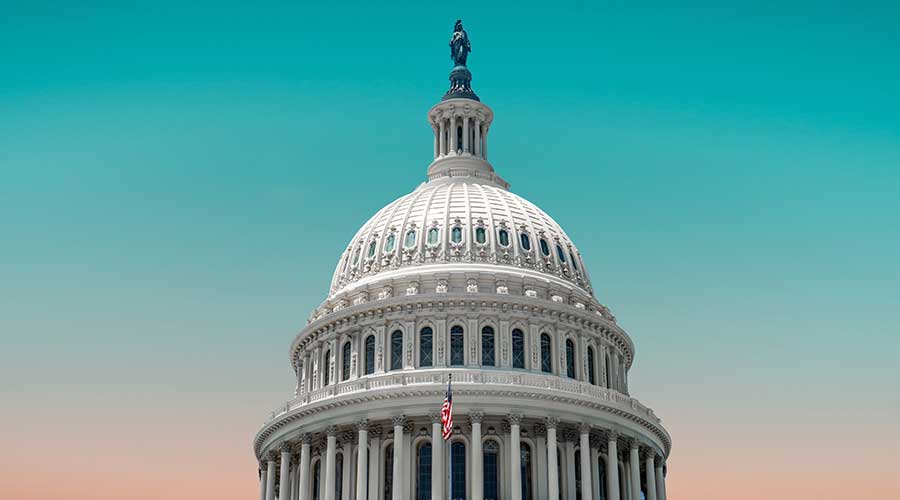Stay updated on news, articles and information for the rail industry
July 2010
Rail News: Short Lines & Regionals
Short-line tax credit — still on hold
— by Desiree J. Hanford
The U.S. Senate's delay in passing legislation to extend an expired maintenance tax credit has derailed — at least temporarily — tie replacement, bridge repairs, track surfacing, and other infrastructure work that short lines had on the drawing board for 2010. And if the tax credit isn't passed before temperatures drop and the snow flies in the northern half of the United States, many short lines may have to postpone the work until 2011.
"We have throttled back on all but essential maintenance for safety purposes," says Eugene Blabey, chairman and chief executive officer of the Western New York & Pennsylvania Railroad. "In terms of program maintenance, such things as surfacing and upgrades, we're basically throttling back on that until we see where the tax credit is going."
The Railroad Track Maintenance Tax Credit — Section 45G of the U.S. tax code — went into effect in January 2005 as part of the American Job Creation Act. The tax credit enables short lines to claim a tax credit of 50 cents for every dollar spent on infrastructure improvements, up to a cap of $3,500 per mile of owned or leased track.
Although Congress has extended the tax credit a few times since its inception, it has yet to do so for the 2010 tax year.
On May 28, the House passed the Tax Extenders Act of 2009, which includes the tax credit and a host of unrelated items, such as the extension of unemployment benefits.
The Senate has crafted a slightly different form of the legislation, although it features the same wording for the tax credit extension. The chamber had yet to act on the bill as of press time.
"[It's] too early to publish the obituary of the Extenders Bill," says Adam Nordstrom, a partner in short-line industry lobbying firm Chambers, Conlon & Hartwell L.L.C. "The Extenders Bill is generally considered 'must pass' legislation, but 'must pass' rarely translates into 'easy to pass.'"
'We'll Muddle Through ...'
Until it does, short-line project planners say they have no choice but to put work on hold. The Watco Cos. Inc., which owns 22 short lines that operate in 18 states, has postponed more than $12.5 million worth of projects, including the installation of 89,000 new ties and more than 1 million feet of track resurfacing.
Also, Watco-owned railroads have bridges that need to be upgraded in order to handle heavier rail cars, says Ed McKechnie, chief commercial officer.
"The key is having the money to pay for [the work]," he says. "We think we have broad support in Congress and can show that it will lead to concrete work and create value for our customers. We are a very small portion of this package. [Short lines'] total price tag is $165 million, a relatively modest investment in a very essential, critical part of the industry."
Western New York & Pennsylvania officials want to upgrade a branch line that serves an expanding paraffin refinery in McKean County, Pa., a line that hasn't been upgraded extensively since it was owned by Conrail in the 1970s.
Speed Limits
The short line performs all the necessary maintenance, but only can operate trains at speeds of just 10 mph to 15 mph on the line until a 30-year backlog of work can be completed, Blabey says. That work includes surfacing, and tie and ballast replacement.
"It basically needs a half-million dollars in work," Blabey says. "That was one of the projects we targeted that would have employed additional people, but we're not going to spend the money unless we get the tax credit because we don't have the money. We'll muddle through until we can either get a grant or a tax credit."
For short lines, the good news is that it isn't too late in the year to begin infrastructure work. In the southern third of the United States, the climate typically enables railroads to complete work up until late fall.
But if a final vote on the tax credit is put off until after the November elections, the tax credit will be relatively worthless to short lines that operate in the nation's northern half; cold temperatures, snow and other harsh weather conditions will put work on hold, Blabey says.
Short lines aren't the only entities affected by the extension delay. When projects are on hold, railroads aren't purchasing products and materials from suppliers.
In addition, shippers might not receive the quality of rail service they deserve if certain trackwork isn't done, McKechnie says.
Ultimately, the delay won't cause any "catastrophes" — safety-related trackwork continues to be completed — but trains can't travel at faster speeds and larger rail cars can't be used on some railroads until the tax credit is extended, he says.
"Railroads are built, fixed and maintained in an incremental way," McKechnie says. "They don't fall apart all at once, and they aren't fixed all at once."
Desiree J. Hanford is a Chicago-based freelance writer.


 2025 MOW Spending Report: Passenger-rail programs
2025 MOW Spending Report: Passenger-rail programs
 Gardner steps down as Amtrak CEO
Gardner steps down as Amtrak CEO
 Guest comment: Oliver Wyman’s David Hunt
Guest comment: Oliver Wyman’s David Hunt
 Women of Influence in Rail eBook
Women of Influence in Rail eBook
 railPrime
railPrime







